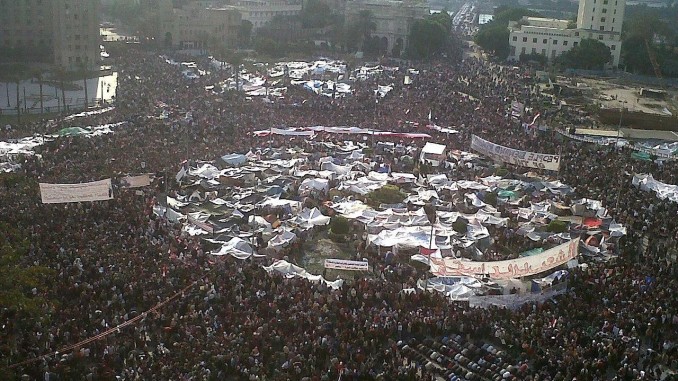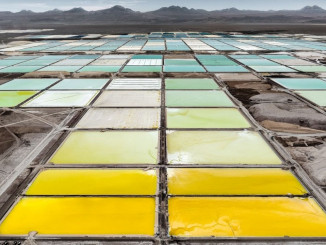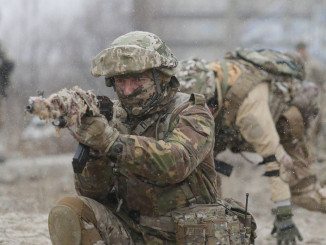
It has been ten years since the people of Egypt overthrew Hosni Mubarak, the dictator who ruled that country for 30 years. Mubarak was forced out of office by mass demonstrations which began in Cairo’s Tahrir Square on January 25th. The population had faced 30 years of the military dictatorship enriching itself at the expense of the population. Egypt’s military regime, closely tied to the United States by $1.3 billion a year in military aid, opened the doors to investment by foreign companies. The regime and foreign investors made billions of dollars while the average Egyptian lived in extreme poverty. Mubarak’s own personal wealth topped $70 billion by some estimates, larger than the Egyptian state budget itself. His military dictatorship kept its grip on Egypt through a huge network of police and security agents. But even this repressive apparatus wasn’t enough to stop thousands and eventually millions from taking to the streets. The anger and frustration of the Egyptian people erupted like a volcano. Eighteen days later, on February 11, Mubarak announced his resignation from the presidency, ending his decades-long domination of the state.
Egypt’s Military – From Heroes to Zeroes
The military in Egypt had ruled the country since taking power in 1952. It has done so with only a window dressing of democracy, mostly to please its foreign allies like the United States. At the same time, the military has a heroic and popular image. Its seizure of power in 1952 overthrew the British-dominated monarchy. While led by general Gemal Abdul Nasser, the military presided over an expansion of education, industry, and opportunity for ordinary Egyptians. Nasser nationalized the Suez Canal, taking over Egypt’s most valuable resource – a waterway though which more than ten percent of the world’s commerce flows. Nasser’s popular policies were turned around in the 1970s, however, through deals with the U.S. made by Nasser’s successor, General Anwar Sadat, and Hosni Mubarak after him. The economy was privatized and sold to Western companies. Subsidies for food, cooking fuel, housing, and other social services were cut. By the 2000s, the military could only hold power through police power, torturing and sexually assaulting dissidents and generally terrorizing the population.
The Muslim Brothers – False Promises Hidden Behind Faith
The only opposition which had been successfully organized under Mubarak’s rule was the Muslim Brotherhood. The Brotherhood is an organization which officially proclaims that it defends the Muslim faith in politics, but behind it is a particular set of interests – those of the wealthy who don’t have family or business ties to the military. The biggest donor to the Brotherhood, and one of its biggest leaders during 2011, is Khairat al-Shater, the multi-millionaire owner of a chain of furniture stores. Businessmen like al-Shater were active in the Muslim Brotherhood because they were shut out of key markets and businesses by the military. They raised moral criticism of military corruption in the language of Islam. The Brotherhood in Egypt also maintained a wide network of charity and health care services during the 1980s and 1990s, making it popular among the poor. This extensive network, formed in opposition to Mubarak, almost guaranteed their rise to power when elections were held in 2012.
With Mubarak overthrown, the Muslim Brotherhood had its moment in the sun. In the 2012 elections, following Mubarak’s departure from power, the Muslim Brothers won the presidency with their candidate, Muhammad Morsi. The Morsi regime immediately began to demand changes, proposing a revised constitution with new religiously motivated laws, and a role for the Islamic authorities in legislating. Meanwhile they maintained exactly the same foreign and economic policy as Mubarak, cutting subsidies and welfare, opening the country up to foreign investment, and setting themselves up as the new rulers of Egypt in place of Mubarak’s network of military and business elites. The Muslim Brothers hoped that increasing the role of religion in politics would be popular enough to distract people from their economic policies. It wasn’t.
The Volcano Set to Explode, Stopped by the Military?
By July, 2013, anger against Morsi’s regime had mounted. Tens of thousands of small strikes across the country showed the growing anger of poor and working people. Protests against low wages and cuts to subsidies threatened to break out into a new stage of the revolt, this time against the Muslim Brotherhood. Thousands gathered again in Tahrir Square. In this moment, the military led by general Abdel Fattah al-Sisi launched a coup. The military once again took command of the country, overthrowing Morsi and the Muslim Brotherhood.
After Mubarak’s overthrow, and the rise to power of the Mohammad Morsi and the Muslim Brotherhood, the military had received a degree of popular support. By criticizing Morsi and pretending to support the opposition to his regime, they were able to step back into the shadow of its former glory, recalling Gemal Abdel Nasser in the 1950s. This illusion was shattered quickly as al-Sisi’s regime became even more repressive than Mubarak’s. Muslim Brotherhood activists were slaughtered in the hundreds in protests that left more than 2,000 dead. It wasn’t long before the violence against the Muslim Brotherhood became a general policy towards the society.
Pent Up Rage, Set to Explode
Al-Sisi’s regime has extinguished all oxygen in the society using brute police violence. Reporters are arrested, sermons in mosques are printed and distributed by the state, strikes and demonstrations are forbidden, and criticism is not tolerated. Even today, during the COVID crisis, the complaints of doctors and their alarm over the dangers of the disease have prompted Al-Sisi’s regime to label doctors and nurses a “white army” acting against the Egyptian state.
Al-Sisi has used repression to guarantee that Egypt’s foreign policy and economic policy remain the same. Al-Sisi’s regime has far more in common with Morsi’s and Mubarak’s than the demands of the protestors in Tahrir Square. Al-Sisi’s regime quickly began negotiating a $12 billion loan deal with the International Monetary Fund, a money-lending tool of foreign policy for wealthy countries like the U.S. In 2016 Al-Sisi got his $12 billion, enlarging the power of his government, especially the police. In return, Egypt’s currency was de-valued, dropping the average Egyptian wage to its lowest point since 2011. According to the World Bank, more than 60% of Egyptians are poor or live in vulnerable conditions. This was exactly to be expected. No wonder that at a 2019, Donald Trump called out to al-Sisi, ““Where’s my favorite dictator?”
Ten years later, it may seem like there is nothing left and that the massive movement that overthrew a 30-year dictatorship has left nothing in its place. However, the experience of 2011 remains in the memory of people. Millions were active, bringing their friends, communities and co-workers out into the streets. They removed a dictator, and proved that it is possible. Then they got cheated out of their victory by the Muslim Brotherhood and the generals led by al-Sisi, two elites trading power but maintaining the same system.
The anger and frustration that drove people into the streets in 2011 is still present today. The massive repression exercised by al-Sisi’s regime is more a sign of fear than of power. What else could he be so afraid of, other than the overwhelming power of the people? It only took eighteen days to force Mubarak out, and that power still lies in the hands of millions of ordinary Egyptians suffering under the weight of dictatorship. The problem remains, in Egypt as everywhere, for the poor and working people to take the lead themselves rather than follow after one set of elites or another. The revolutionary hope that manifested in Tahrir Square in 2011 is set to erupt again. Egypt today is a volcano waiting to explode.




